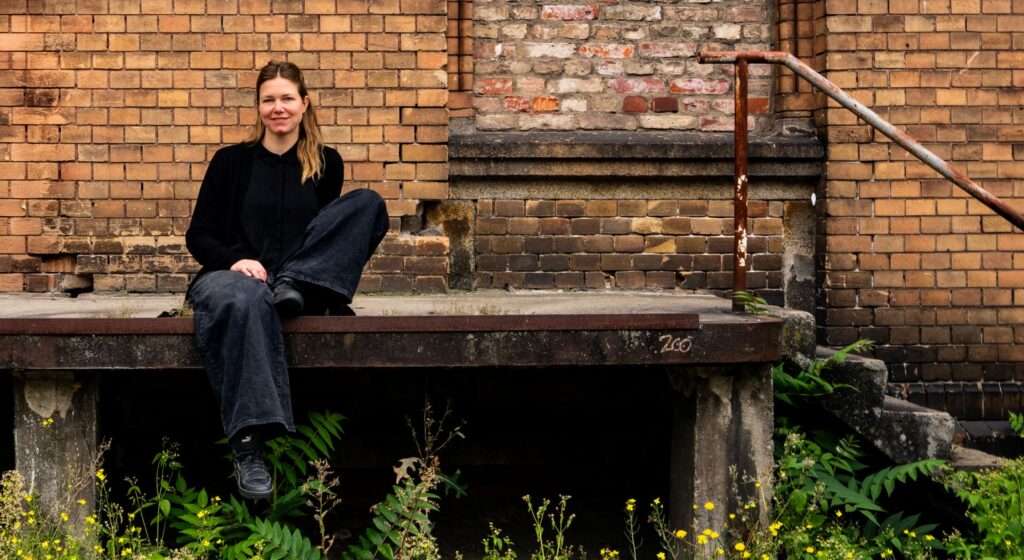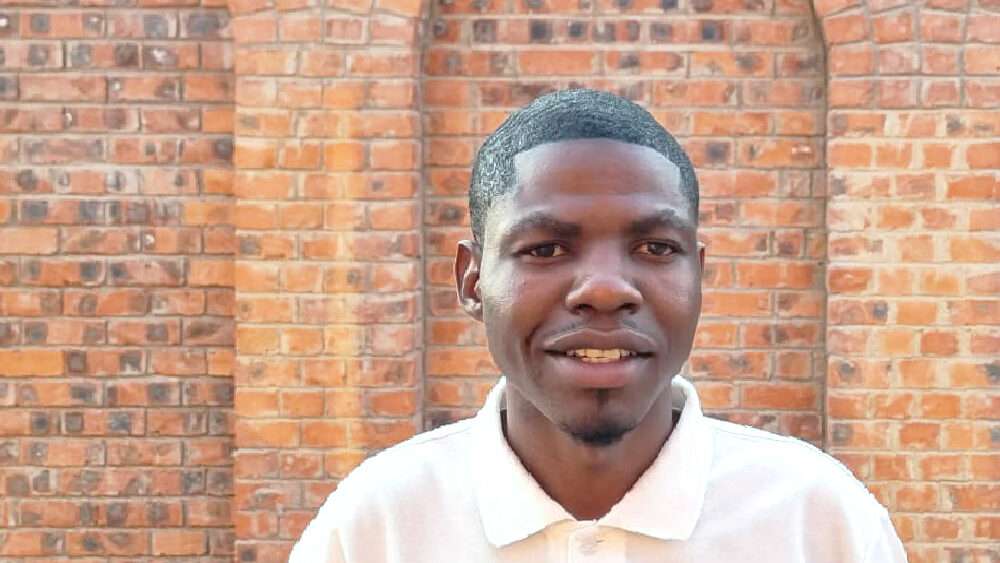Credit: Greg Amira
About us
VISION
Our vision is to acknowledge cultural and social values in communities, particularly on the African continent. We express this appreciation in architectural projects by developing adapted, tailored designs and plans. In this way, we promote a decolonial form language that respects local building traditions and available materials.
This appreciation aims to empower communities to express their cultural strengths and integrate them into their everyday built environment. We consider and emphasise historical and contemporary conditions at project sites in the design process. Our vision is therefore expressed in our support of architectural projects, in which traditional elements arising from social cohabitation are transferred to contemporary planning and construction projects. Lost opportunities due to the colonial past are reintegrated into the cultural context of the location, while at the same time being adapted to the present, leading to decolonial collaboration.
COMMITMENT
Our vision is based on the African Union’s aspirations to achieve the ‘Africa We Want’ through its Agenda 2063. This agenda describes a continent that embraces its own strengths in the spirit of Pan-Africanism: “Our diversity in culture, heritage, languages and religion shall be a cause of strength.” (AU, point 41) Accordingly, we support a strategic concept that reflects the needs and desires of the continent’s populations. Our funded building projects particularly align with the fifth of the seven stated goals: “An Africa with a strong cultural identity, common heritage and shared values and ethics.”
CULTURE-BASED ARCHITECTURE
Architect Amos Rapoport has studied the relationship between culture and the form of the built environment. He poses the following question: “How does culture get translated into form?” (A. Rapoport)
This question remains highly relevant in the context of colonial continuities and forms the basis of our vision for culture-based architecture. In her doctoral thesis, our founder, Kristina Ziadeh, researched the impact of intuitively applied behaviours on architecture, as well as the intertwining of culture and architecture within the design process: “The design, understood as an influenceable variable, becomes the object of interpretation of culturally existing conditions at the project site. Looking back at traditional moments in the built past and gaining insights into culturally anchored habits enables a transformation of existing ideas into a design for the future.” (K. Ziadeh)
COLLABORATIVE PARTNERSHIP
The realisation of our vision is based on collaborative partnerships with all involved stakeholders. This approach is rooted in decolonial values and structures and follows the ethical principles of Pan-Africanism. Through this approach, we strengthen African voices, promote self-determination and self-confidence on the continent, and strengthen the cultural identities of people of African descent.
By emphasising the importance of cultural heritage at the project sites, we highlight the knowledge of people who, due to global power relations and colonial continuities, rarely receive attention beyond their social environments. Shaped by social and cultural habits, this knowledge has long determined traditional building methods. However, since industrialisation and the specialisation of architecture, buildings have lost their connection to their originally so important direct surroundings. They are increasingly adapting to a global understanding of materials that no longer do justice to local needs and cultural requirements.
Conversations with Zambian architects and civil engineers also reveal the competitive advantage gained purely through the presence of privileges. As B. Muzeya stated, “the desire for inspiration through travel is strong, but the realities of life often do not allow this”. Our goal is therefore to recognise these limiting realities in order to interact fairly with one another.
FUNDING PHILOSOPHY
We wish for the same level of dedication to partnership-based collaboration from our donors and funding partners. Their contributions are crucial to the success of our projects. We appreciate their commitment and trust in our ability to carry out our intercultural projects. We focus on long-term partnerships and welcome donations from individuals, companies, and foundations.
At the same time, we verify the origins of donations in accordance with our ethical principles. We do not accept donations from the defence industry and reserve the right to return donations from companies or individuals whose actions we cannot ethically justify.
TEAM
Dr.-Ing. Kristina Ziadeh, Founder & Managing Director
Kristina Ziadeh is a German architect, founder, and managing director of studio*k ACT, based in Berlin. As an architect and entrepreneur, she focuses on the relationship between design and social concerns, particularly those that arise when building in intercultural contexts. In her dissertation, she explored the connection between existing ways of life and the design of the built environment. Over a period of more than 10 years, she volunteered with Engineers Without Borders. As a volunteer, she planned and built a school in Zimbabwe, where she worked as construction supervisor for several years. In 2022, she founded the architecture office studio*k ARCHITECTURE, also based in Berlin.
About Kristina and studio*k ARCHITECTURE
More details regarding Kristina’s dissertation
Kristina’s architecture projects
Awards, exhibits, and presentations
Talent Emmanuel Rupiya, Project manager
Talent Emmanuel Rupiya is a Zimbabwean construction expert and managing director of Shining Beam Construction. With a focus on management, he addresses key issues such as project planning, risk management, team leadership, quality control, and stakeholder communication. From 2017 to 2023, he gained valuable experience as a construction supervision assistant with Engineers Without Borders Germany during the construction of Rising Star School in Hopley, Harare. He joined studio*k ACT as project manager, further honing his skills in construction management.
Jessica Eitelberg, Fundraising & Communications Manager
Jessica Eitelberg is a communications and fundraising professional with a track record in campaign management, social media, and event management. She currently leads the communications team at Engineers Without Borders Germany, having previously worked there as a fundraiser from 2019 to 2023. She also worked in similar positions at NGOs such as Transparency International and the World Fair Trade Organization. Jessica is an experienced trainer and educator specialising in historical and anti-discrimination education. She is skilled in editing and translating, with a focus on diversity and inclusion in language. She holds a master’s degree in Ethnic & Migration Studies from the University of Amsterdam and a bachelor’s degree in International Studies and Politics from the University of Birmingham. At studio*k ACT, Jessica manages fundraising & communications.
TRANSPARENCY
Annual report
As the company was founded in December 2024, no annual report is available at this time. The annual report for 2025 will follow in due course.
Registration
1. Name, registered office, address and year of foundation
studio*k ACT gGmbH
Plesser Str. 9
12435 Berlin
Germany
+49 176 23598588
info@studiok-act.com
www.studiok-act.com
Commercial register: HRB 273014 B
Register court: Amtsgericht Charlottenburg
Tax number: 27/612/10809
Authorised Representative Managing Director Dr.-Ing. Kristina Ziadeh
Year of foundation: 2024
2. Information on tax relief
Our work is exempt from tax due to the promotion of charitable purposes (public and vocational education, tolerance in all areas of culture and international relations, and development cooperation) according to the latest assessment notice we received from the Tax Office for Corporations I, Berlin (tax number 27/612/10809) dated 10 November 2025 (assessment period 11/2025 to 11/2030) and is exempt from corporation tax in accordance with Section 5 (1) No. 9 of the Corporation Tax Act (KStG).
3. Name and function of main stakeholders
Shareholder assembly: Sole shareholder Dr.-Ing. Kristina Ziadeh
Managing director: Dr.-Ing. Kristina Ziadeh
4. Personnel structure
1 Employee: Managing director (Dr.-Ing. Kristina Ziadeh)
1 External contributors: Project management (Talent Rupiya)
3 Voluntary contributors: Fundraising & Communication (Jessica Eitelberg), Project collaboration (Jurian Trillitzsch) and Accountancy (Theo Egbers)
5. Details of the source of funds
Our work is financed by donations and funds.
6. Information on the use of funds
Revenue 2024: 0€
Expense 2024: 0€
With the company being founded on 23 December 2024, no financial resources have yet been transferred in the year stated.

